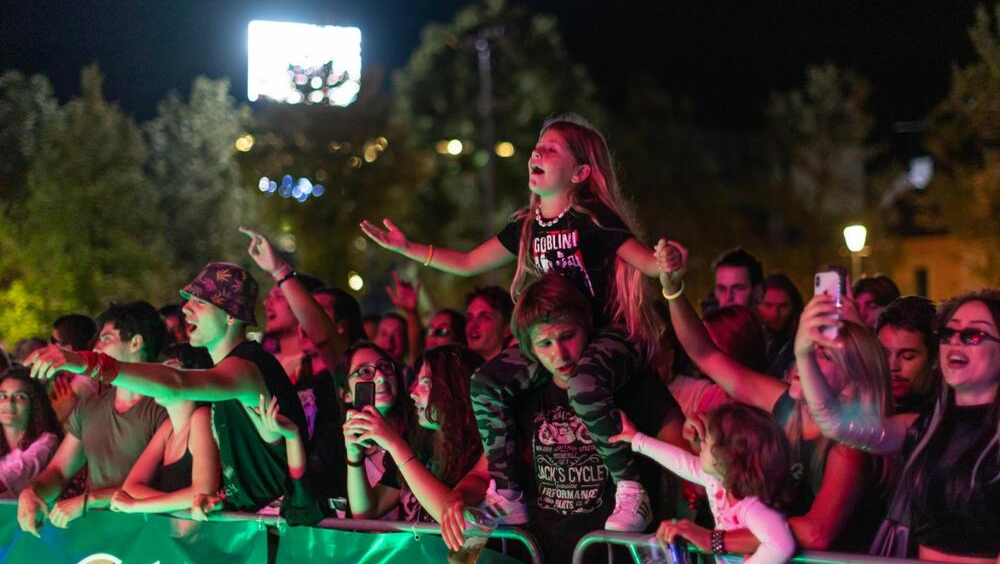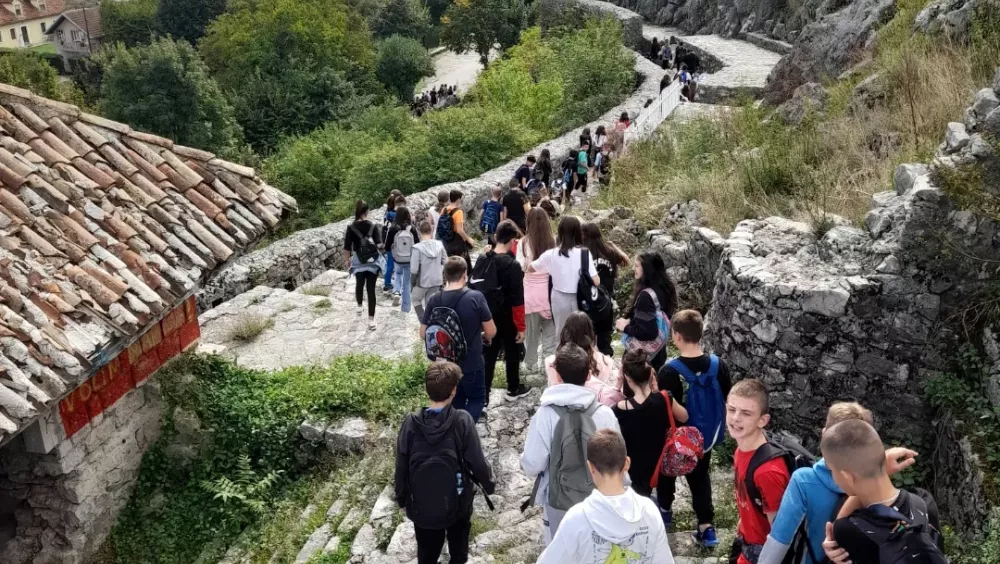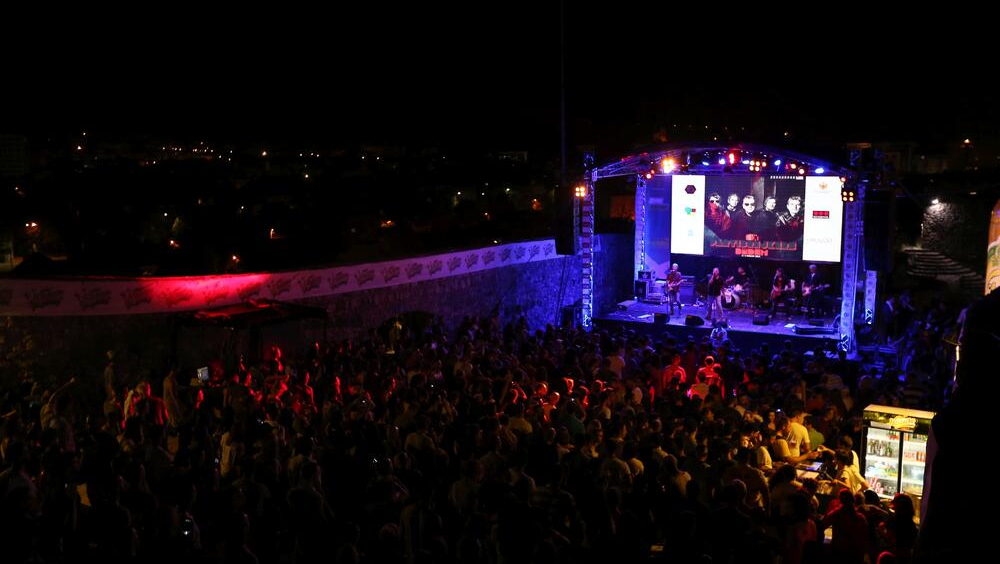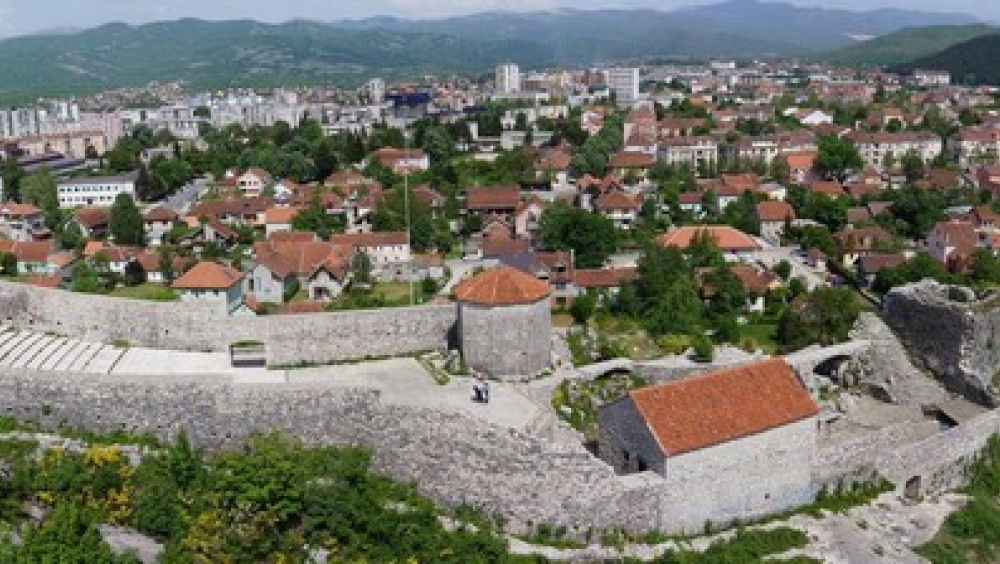Creating a new European legacy - The heritage of festivals in Europe
Europe is faced with serious challenges, which with enthusiasm, respect for human dignity, tolerance, dialogue, openness can be a reason for Europeans to come together in the spirit of respect for "unity in diversity". Festivals are meeting places, a tool for intercultural dialogue, peace, nurturing the spirit of shared values. Our common heritage for Europe's past, present and future – hard work, philanthropy, creation and creativity! Europe must recognize the value of a festival heritage that reveals what it meant to be European over time. It is a powerful instrument that gives European citizens a sense of belonging. Festival heritage is always both local and European. Forged over time, but also across borders and communities, it is composed of local stories that together make up the history of Europe. Looking back and forward, we believe in the festival's transformation of heritage as an expression of local and European identity, making Europe a laboratory for social innovation by connecting visitors. For an inclusive, sustainable, strong, innovative Europe of all of us! Let's discuss the future role of festivals, education and cultural heritage in strengthening the sense of community and belonging to the European cultural community. Although achievements in terms of culture or identity are difficult to measure, thanks to the festival activities people can get to know others better, experience and understand what it means to be European. We want to support the creation or reactivation of intellectual and emotional connections between citizens and cultural heritage. European citizens should get to know the wealth of European cultural heritage better. The European festival experience shows that it is possible to evolve from an appreciation of one's own uniqueness to an interest in and respect for the cultural heritage of others.
Today, heritage is no longer just a means to create or maintain nostalgic feelings, but is an endless source of knowledge, attitudes and achievements that express human power and creative ingenuity in all its diversity. It is both the fruit of innovation through the ages and a source of knowledge and inspiration. Old approaches sought to protect cultural heritage by isolating it from everyday life. Cultural places are given a new life and meaning that corresponds to contemporary needs and problems. Conservation is increasingly focused on the maintenance and improvement of the entire cultural landscape, rather than on isolated places, and at the same time it is becoming more people-oriented. In this way, cultural heritage sites become social and economic capital. The cities and regions in which they are located become drivers of economic activity, centers of knowledge, focal points of creativity and culture, places of social integration and interaction within communities. In short, they create innovation and contribute to smart, sustainable and inclusive growth. The project emphasizes that cultural heritage and tourism mutually benefit each other because cultural heritage on the one hand generates considerable income for the tourism industry, and on the other hand tourism benefits culture because it encourages the display of cultural treasures to visitors and generates income necessary for their preservation. 27% of European travelers state that cultural heritage is a key factor when choosing a travel destination. Cultural heritage is a common resource and common good. Cultural heritage can therefore help in branding cities and regions, attracting talent and tourism. He emphasizes that cultural tourism has an important role in preserving, realizing and valorizing the value of our cultural heritage. Heritage festivals are also tourism events. A cultural heritage festival has a great ability to improve social cohesion by renovating neglected areas, creating jobs at the local level and promoting common understanding and a sense of community. The sector offers significant opportunities for education and volunteering to young and old people and promotes dialogue between different cultures and generations. It is clear that many public policies affect cultural heritage, and cultural heritage, on the other hand, affects many other areas of politics. Therefore, a more holistic approach to preservation, promotion and valuation of heritage is needed in order to take into account its multiple contribution to social and economic goals and its impact on other public policies. Global warming and climate change, especially sea level rise and increased occurrence of extreme weather conditions, can threaten cultural heritage. It is necessary to respond to these challenges in order to ensure the sustainability of European cultural heritage. Due to the multiple and complex challenges facing cultural heritage in Europe, this inclusive and intergenerational approach is particularly needed today. Europe's heritage landscape is at a crucial crossroads as it evolves to tackle the impacts of climate change and respond to current socio-economic needs and priorities; European citizens should get to know the wealth of European cultural heritage better. The European experience shows that it is possible to evolve from an appreciation of the uniqueness of one's own cultural heritage to an interest in and respect for the cultural heritage of others. Although achievements in terms of culture or identity are difficult to measure, thanks to activities in culture people can get to know others better, experience and understand what it means to be European. With our project/story, we want to support the creation or reactivation of intellectual and emotional ties between citizens and cultural heritage by encouraging intergenerational meetings of people at the Fortress during the Bedem Fest. We will achieve greater commitment and attendance of young people to the cultural heritage of the Bedem Fortress by including them in the preparation and realization of the Bedem Fest. The idea that the user or participant themselves can modify the meaning of heritage has indeed come up consistently in our research on cultural heritage festivals. Education and cultural heritage are key for the future - both for the individual and for the whole of our Union. This is how we turn circumstances into opportunities, and mirrors into windows, and thus root the meaning of the word "European" in all its diversity. We must seize the opportunity and make sure that education and culture are drivers of job creation, economic growth, social justice and, ultimately, unity". We need the EU as a guarantee of peace and democracy, but also the security of our citizens. We need the EU in order to better serve their needs and desires for a free life, study, work, movement and prosperity throughout our continent and for the enjoyment of the rich European cultural heritage. We want a Union that preserves our cultural heritage and achieves cultural diversity. Consideration of the future of Europe also implies consideration of the strength of our common identity. When our European values and democracies are challenged by awakened populist forces at home and abroad or by the spread of "fake news" and the manipulation of our information networks, that is the moment when European leaders and EU institutions must react. Sixty years after the signing of the Treaties of Rome, strengthening our European identity is still of crucial importance, and education and culture can ensure this in the best way. We discuss the future role of festivals, education and cultural heritage in strengthening the feeling of common belonging and belonging to the European cultural community. With the project, we continue to promote education about cultural heritage, raise public awareness of the potential of cultural heritage for sustainable development and encourage the participation of the public, especially children and young people, in cooperation with civil society. Stories and memories, former pride and historical lessons associated with historical places are the source of urban development and regional identity and can be revived, interpreted and transformed into new life. This new life includes the reuse of heritage buildings as hubs for cultural renewal, incubators of social capital and experimental playgrounds for new urban development. That is why public support is crucial.
Europe's festival heritage is our common wealth – our inheritance from previous generations of Europeans and our legacy for those to come. It is an irreplaceable treasure trove of knowledge and a valuable resource for economic growth, employment and social cohesion. It enriches the lives of hundreds of millions of people, is a source of inspiration for thinkers and artists, and is the driver of our cultural and creative industries. Our festival heritage and the way we preserve and value it is an important factor in determining Europe's place in the world and its attractiveness as a place to live, work and visit. Festivals heritage is a common resource and common good. In the Declaration on the New Image of Europe: "Europe as a political body must recognize the value of cultural heritage." Heritage reveals what it meant to be European over time. It is a powerful instrument that provides a sense of belonging among the citizens of Europe." Festival heritage is always both local and European. It is forged over time, but also across borders and communities. Festivals heritage is made up of local stories that together make up the history of Europe. To make Europe a laboratory for innovation based on cultural heritage. 27% of European travelers state that cultural heritage is a key factor when choosing a travel destination. Festival heritage can therefore help in branding cities and regions by attracting talent and tourism. Festival heritage has a great ability to improve social cohesion by restoring neglected areas, creating jobs at the local level and promoting common understanding and a sense of community. The sector offers significant opportunities for education and volunteering and promotes dialogue between different cultures and generations. A sector in transformation as a source of social innovation for smart, sustainable and inclusive growth.



